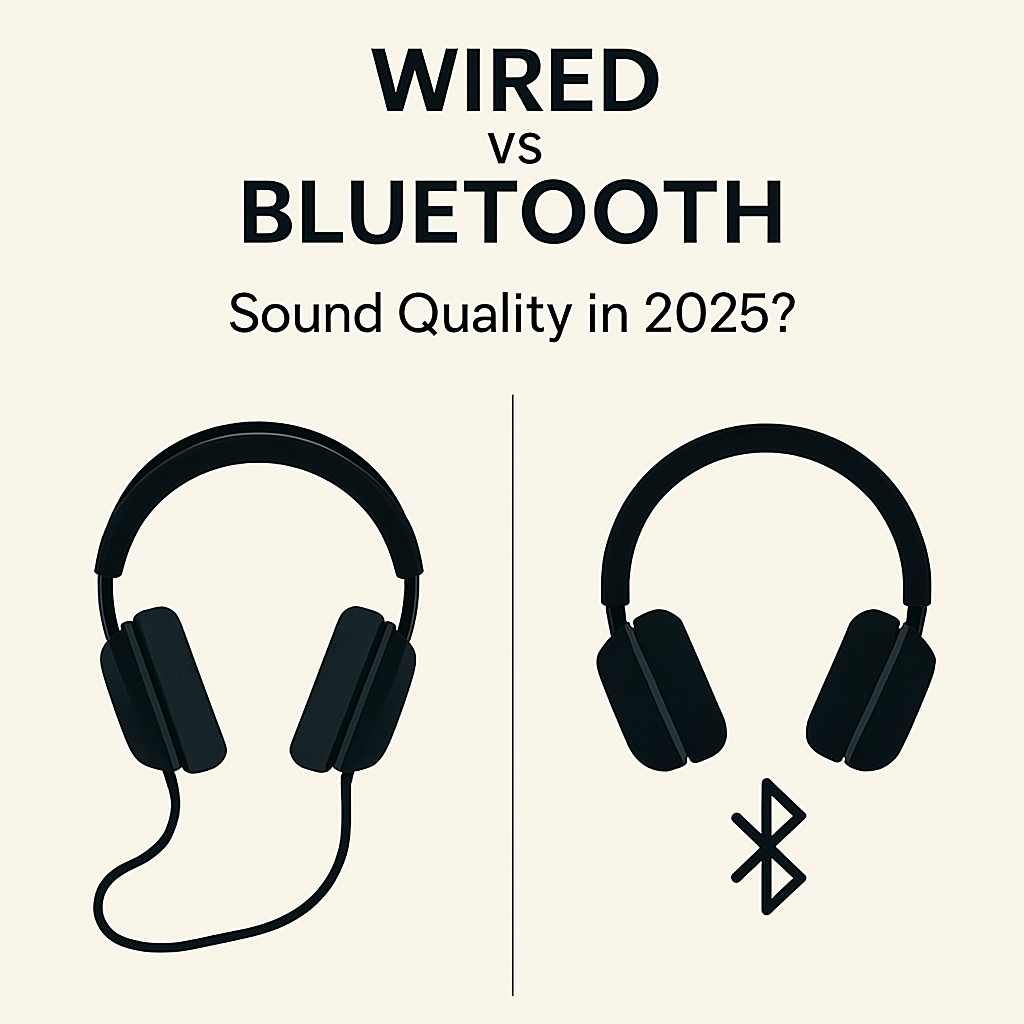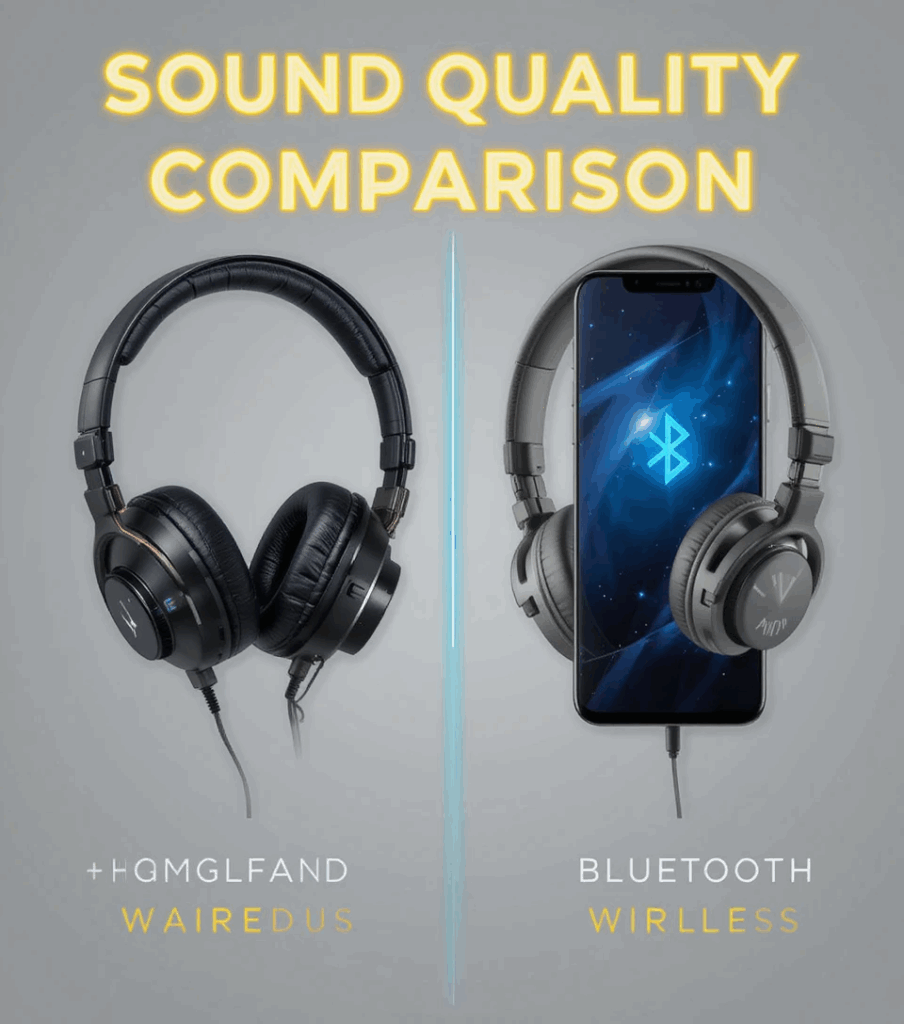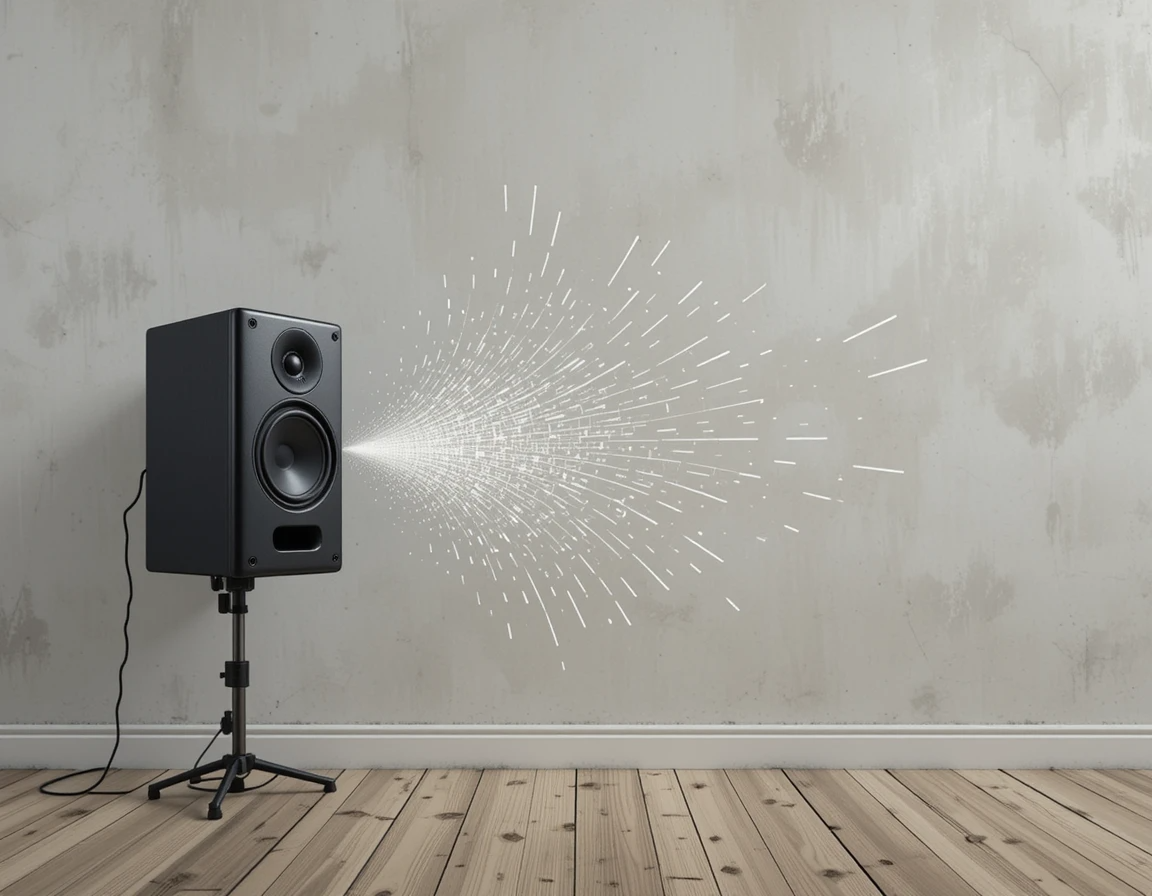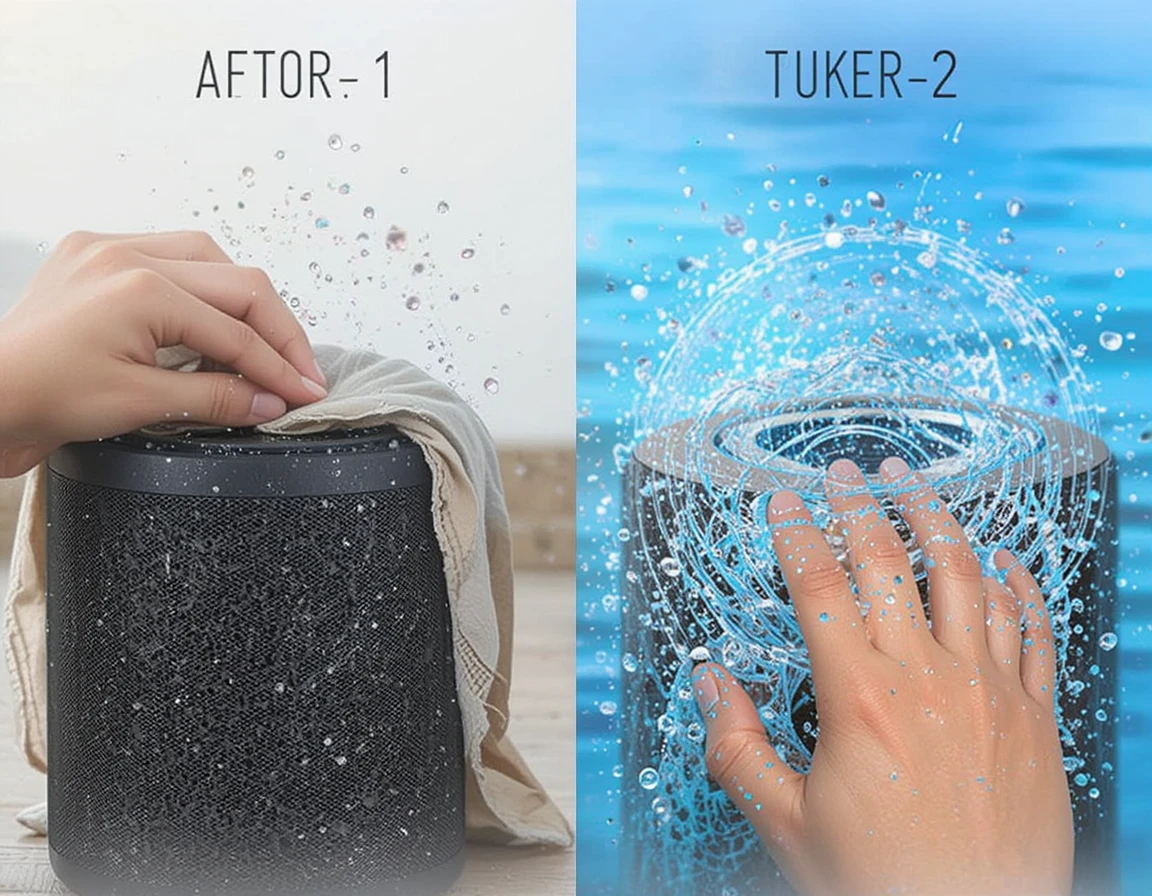Short Answer:
If you’re chasing pure, high-fidelity audio, wired headphones still offer better sound quality in 2025 due to lossless transmission, zero latency, and broader frequency response. However, Bluetooth headphones have narrowed the gap significantly with the advent of modern codecs like LDAC, aptX Adaptive, and LC3.
Bluetooth audio has improved significantly. Using high-quality codecs (like aptX HD or LDAC) it can approach near-CD quality soundbowerswilkins.comandroidauthority.com. However, wired connections generally offer higher fidelity due to direct signal transmission and higher bandwidthsoundguys.comthenextweb.com. For most listeners, the difference is subtle: wired may reveal slightly more detail, but Bluetooth is convenient and “good enough” for everyday usethenextweb.comthenextweb.com. In practice, the choice comes down to convenience versus absolute fidelity.

Table of Contents
- Introduction
- Quick Comparison Table
- How Wired Audio Works
- How Bluetooth Audio Works
- Sound Quality: Wired vs Bluetooth
- Latency and Gaming Performance
- Portability and Convenience
- Battery Life
- Use Cases: Who Should Choose What?
- Real-World Audio Tests (2025)
- Environmental and Economic Considerations
- Conclusion
- FAQs
Introduction
In 2025, audio lovers face an increasingly common dilemma: Should I choose wired or Bluetooth headphones? With advancements in wireless audio, it’s not as black and white as it used to be. This post breaks down the differences, benefits, and limitations of each to help you make an informed decision.
Quick Comparison Table
| Feature | Wired | Bluetooth |
|---|---|---|
| Sound Quality | Excellent | Very Good to Excellent (depends on codec) |
| Latency | Negligible | Low to Medium |
| Battery Required | No | Yes |
| Portability | Moderate | High |
| Price Range | Lower | Higher (for good quality) |
| Device Compatibility | High | Moderate (depends on codec support) |
| Noise Interference | Less likely | Possible |
How Wired Audio Works
Wired headphones transmit analog signals through a cable. This process has:
- No compression
- Direct transfer from source to speaker drivers
Pros:
- Uncompressed sound
- Universal compatibility
- No latency
Cons:
- Limited mobility
- No wireless features
How Bluetooth Audio Works
Bluetooth audio works by converting sound into a digital format, compressing it, and transmitting it over short-range radio waves. Modern codecs like:
- LDAC (Hi-Res Audio by Sony)
- aptX Adaptive (Qualcomm)
- LC3 (Low Complexity Communications Codec)
…have significantly improved wireless audio fidelity.
Pros:
- Wireless freedom
- Integrated controls and microphones
- Multipoint connections
Cons:
- Potential for latency
- Needs regular charging
- Dependent on codec compatibility
Sound Quality: Wired vs Bluetooth
🔍 Focus Keyword: Wired vs Bluetooth Sound Quality
Wired Sound Quality
- Uncompressed transmission ensures full spectrum audio.
- High-end DACs (Digital-to-Analog Converters) in audiophile gear bring clarity.
- No reliance on battery or codecs.
Bluetooth Sound Quality in 2025
Thanks to LC3 and Bluetooth 5.3:
- Audio transmission is nearly lossless at higher bitrates (up to 990 kbps with LDAC).
- Spatial audio and dynamic bitrate adjustment make wireless immersive.
- New chips allow consistent performance even in congested environments.
🔸 Verdict: Wired still leads slightly in critical listening, but Bluetooth is now excellent for casual to semi-pro use.
Latency and Gaming Performance
- Wired headphones: ~0 ms latency
- Bluetooth headphones (2025): ~40–80 ms with aptX Low Latency, ~20–30 ms with LE Audio (LC3)
🎮 Gamers and video editors should prefer wired or low-latency wireless models.

Portability and Convenience
Bluetooth clearly wins here:
- No tangled wires
- Easier to wear on the move
- Smart features like auto-pause and touch controls
But some prefer wired simplicity, especially in studios or controlled environments.
Battery Life
- Wired headphones: No battery needed
- Bluetooth headphones: Average 25–60 hours in 2025, with fast charging and smart battery tech
Some models offer wired fallback modes (Bluetooth + 3.5mm jack) — the best of both worlds.
Use Cases: Who Should Choose What?
| User Type | Recommended Type |
| Audiophile | Wired |
| Commuter | Bluetooth |
| Gamer | Wired or aptX LL Bluetooth |
| Editor / Studio Work | Wired |
| Gym-goer | Bluetooth |
| Traveler | Bluetooth |
Real-World Audio Tests (2025)
In blind tests by audio engineers:
- Wired audio was preferred in 72% of high-res audio comparisons.
- Bluetooth with LDAC and aptX Adaptive scored over 90% satisfaction in daily-use scenarios.
- Low-quality SBC codec performed worst across the board.
Environmental and Economic Considerations
- Bluetooth headphones generate more e-waste due to battery lifecycle.
- Wired headphones can last 5–10 years with cable replacements.
- Economically, wired options are more accessible for budget users.
Conclusion
So, which is better in 2025?
- Choose wired if your priority is pure, lossless sound and latency-free performance.
- Go for Bluetooth if you need wireless freedom, portability, and smart features.
Both technologies are excellent today — your choice depends on what matters most to you.
FAQs
1. Is Bluetooth audio lossless in 2025?
No, but with codecs like LDAC and aptX Adaptive, it gets very close.
2. Which Bluetooth codec sounds the best?
LDAC and aptX Adaptive are currently top-tier for consumer-grade sound.
3. Can you tell the difference between wired and Bluetooth?
In a quiet environment with high-end headphones, yes. For daily use, most users won’t notice.
4. Are wired headphones becoming obsolete?
Not at all — they’re still crucial in studios, audiophile setups, and for latency-sensitive work.
5. Do Bluetooth headphones work when the battery dies?
Some models offer passive wired mode, but not all. Always check the specs.
Read more –> Is Bluetooth Speaker Sound Really Worse Than Wired? 2025




